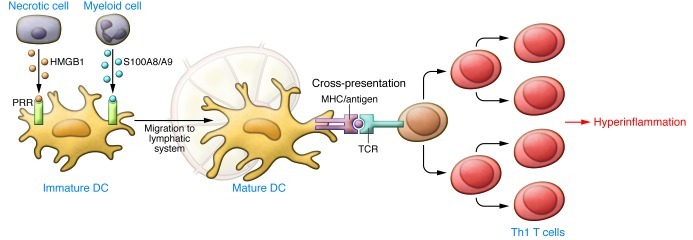Figure 2. Induction of chronic and autoimmune inflammation by alarmins by upregulating the adaptive immune response.
Alarmins recruit immature DCs and induce their functional maturation, leading them to take up antigens and home to secondary lymphoid organs. Here, they present antigenic epitopes to naive T cells, driving Th1 T cell polarization and inducing an adaptive immune response. Persistent release of alarmins upregulates ectopic MHC type I and II expression and presentation of previously unencountered antigens as well as uncontrolled proliferation of T cells, driving a hyper-inflammatory environment. Adapted with permission from Immunological Reviews (7).

